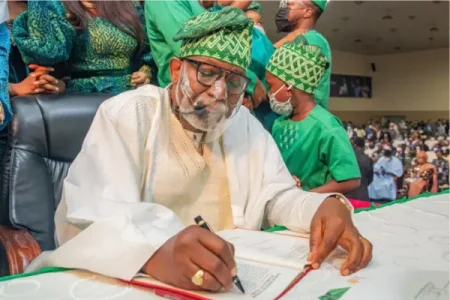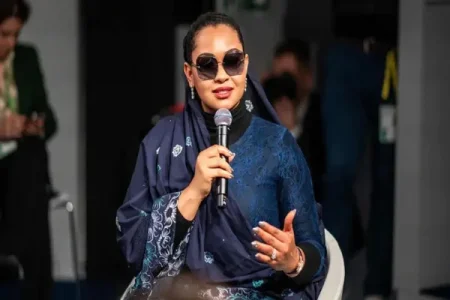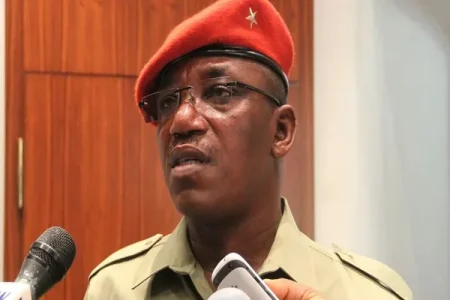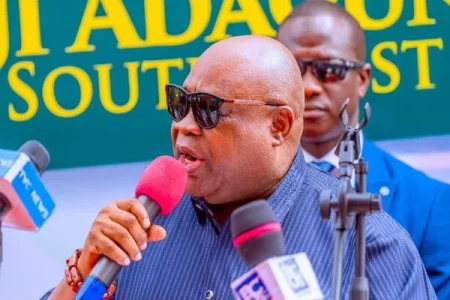
In a somber turn of events, the Ondo State Governor, Rotimi Akeredolu, has passed away at the age of 67, according to a family source. Akeredolu reportedly breathed his last in Lagos, where he had been receiving medical attention from State House doctors. Sources indicate that attempts to transfer him abroad were hindered, forcing him to be treated within the country.
The governor's battle with leukemia, exclusively revealed by SaharaReporters earlier this year, unfolded amid public scrutiny over his management of the state from Ibadan during a three-month medical leave in Germany. Akeredolu recently handed over power to his deputy, Lucky Aiyedatiwa, as his health deteriorated.
The suspension of First Lady Betty Akeredolu's 70th birthday celebrations added to the public's concern about the gravity of the governor's health condition. Mrs. Akeredolu took to Twitter to announce the postponement, citing unforeseen circumstances. Her earlier posts had raised questions about the appropriateness of festivities amid her husband's illness.
Leukemia, a cancer of the blood, had plagued Governor Akeredolu, affecting his ability to govern effectively. The disease disrupts the production of normal blood cells, leading to symptoms such as weakness, fatigue, and susceptibility to infections. Akeredolu's courageous battle with leukemia, known since January, underscores the challenges faced by individuals grappling with complex illnesses.
As Ondo mourns the loss of its leader, questions about the state's political future loom large. Acting Governor Aiyedatiwa now faces the daunting task of steering the state through this challenging period. The people of Ondo, along with the nation, await official statements from government authorities and expressions of condolence from political figures.
This development reignites conversations about healthcare infrastructure in Nigeria and the need for comprehensive strategies to address medical challenges faced by public figures. As the nation reflects on Governor Akeredolu's legacy, the impact of his tenure and the unresolved healthcare issues he faced underscore the broader national discourse on leadership, health, and governance.




